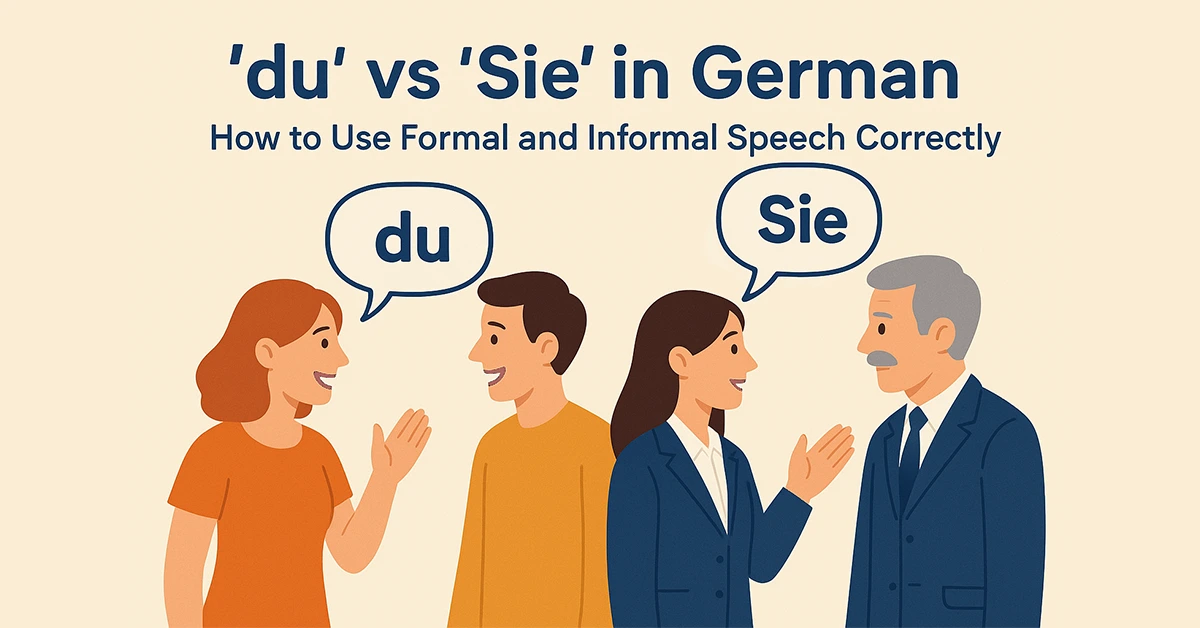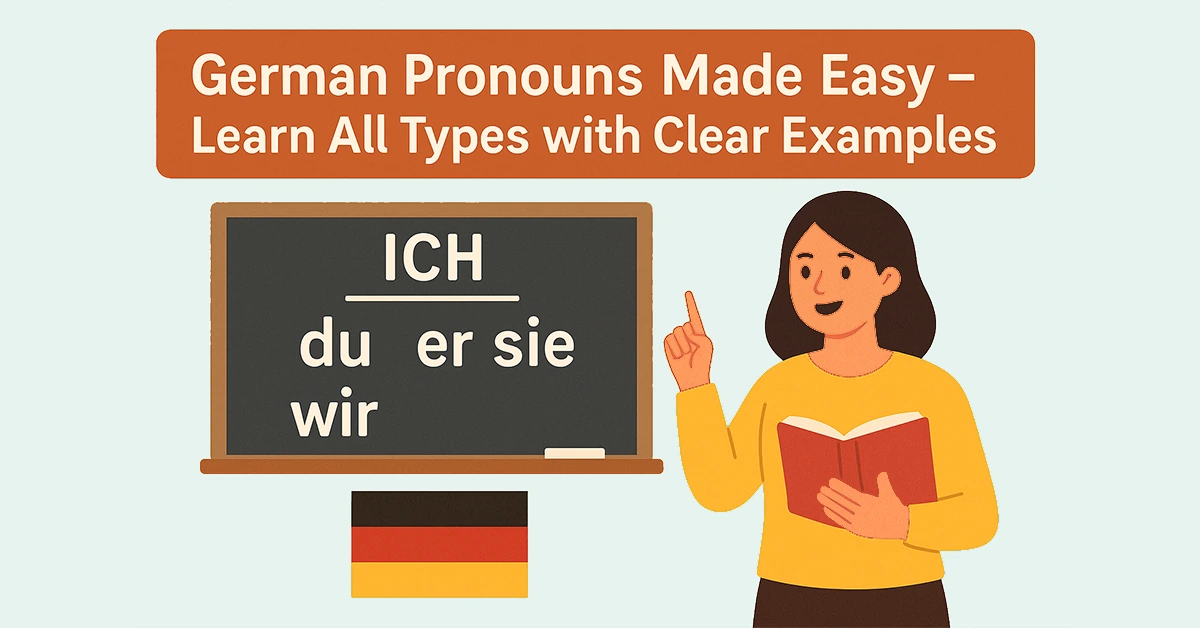German pronouns
-

“du” vs “Sie” in German – Formal vs Informal Speech Explained
Learn when to use “du” and “Sie” in German with real-life examples, grammar tips, and cultural insights. Master formal and informal speech with confidence!
-

German Pronouns Made Easy – Learn All Types with Clear Examples
Learn all types of German pronouns with simple explanations and examples. This complete guide covers personal, reflexive, possessive, and more – perfect for beginners!